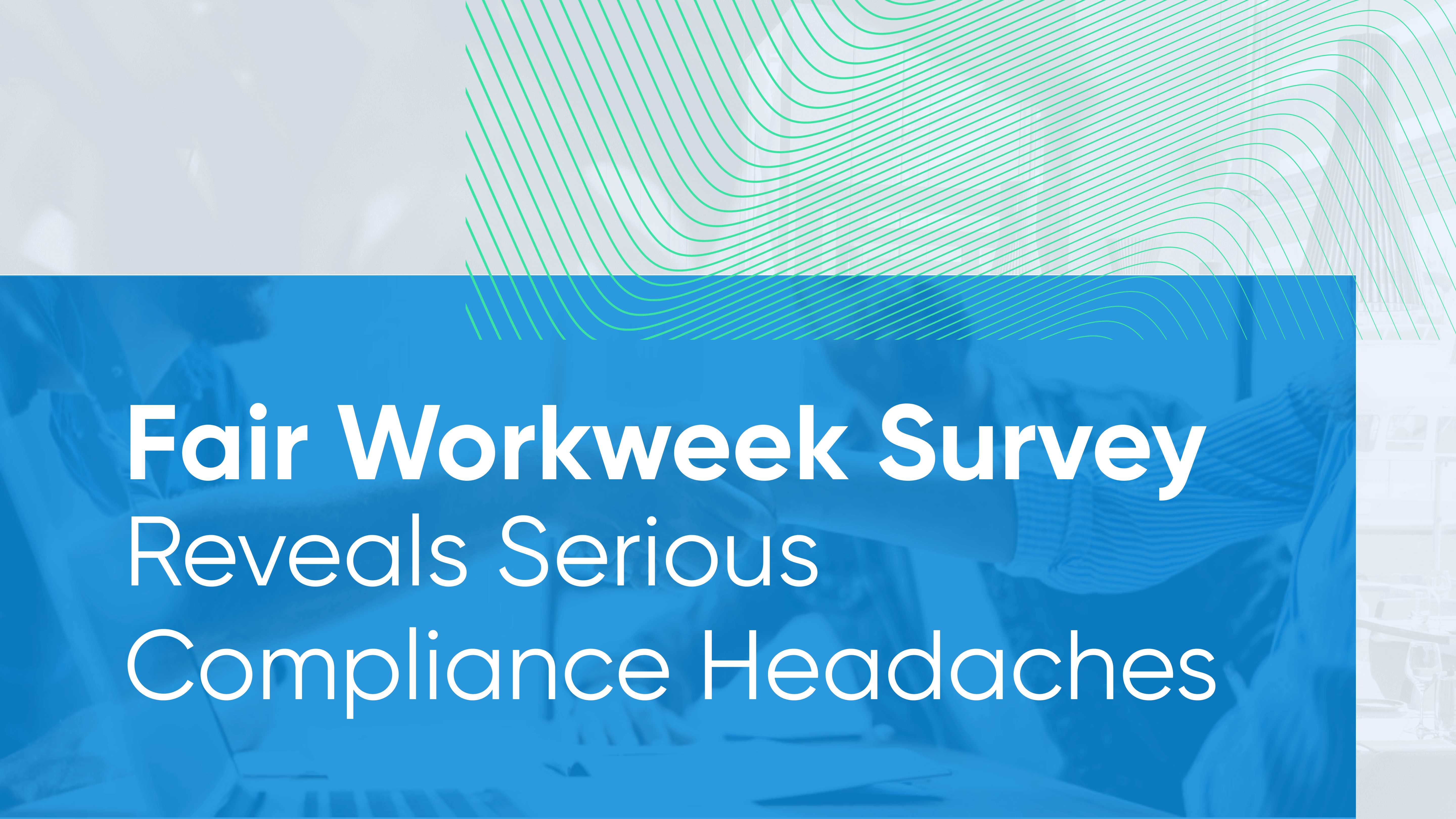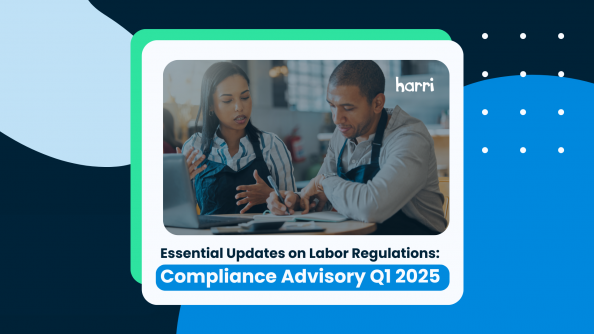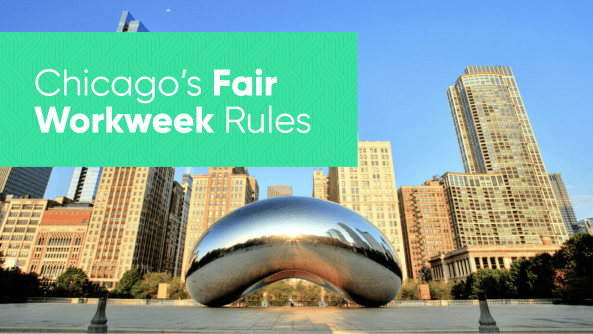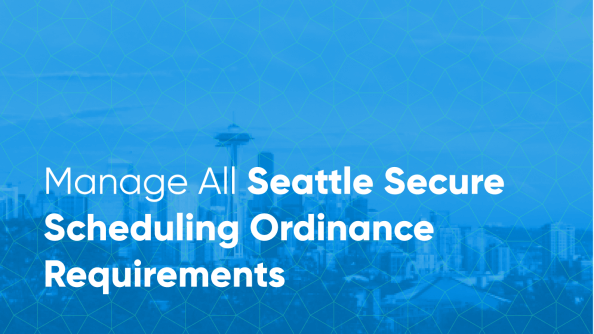Industry’s Fair Workweek Impact Survey Reveals Serious Compliance Headaches

- By Harri Insider Team | March 10, 2020
Harri, the disruptive end-to-end workforce management software platform powering hospitality businesses to build, manage and engage their teams today released its 2020 Hospitality and Food Service Fair Workweek Readiness Survey showcasing Fair Workweek data.
These survey results represent a range of restaurant operators from approximately 5,300 restaurants and over 45,000 employees across US markets impacted by Fair Workweek Law (Predictable Scheduling Law).
The report centers on analyzing the impact of scheduling legislation, enacted or proposed by more than 26 cities and states across the U.S. The findings point to a number of notable impacts on business and labor operations:
37% experienced labor costs increases ranging from 3 to 9%;
To counteract rising labor cost, 41% reduced employee hours whilst 12% eliminated jobs;
Indirect costs are also having a major impact; 51% of respondents identified significant increases in weekly time spent by managers creating compliant schedules and 40% accounting for premiums in payroll and reporting workflows
“There’s been a publicized wave of high-profile violations stemming from a complex and confusing wave of recent scheduling-related legislation. Our first-of-a-kind research shows the effort to comply triggers a chain reaction of suboptimal outcomes as businesses attempt to counteract the direct and indirect costs of compliance,” said Ryan Mang, CRO of Harri.
“It’s clear that Fair Workweek laws are well-intentioned and a framework that brings consistency and predictability of work patterns and earnings is of benefit to both employees and businesses alike. However, the complexity and lack of clarity surrounding how these regulations translate to real-life scenarios, make them operationally untenable for even the most sophisticated and well-resourced operators.”
The survey reveals that the following areas are the greatest source of compliance concern amongst operators:
Calculating and updating good faith estimate documentation 39%
Publishing compliant schedules to employees in well in advance of working periods 49%
Tracking employee and manager driven scheduling changes 54%
Avoiding scheduling penalties 29%
Reporting, tracking and paying premiums resulting from scheduling changes 27%
Providing evidence that available shifts are first exposed to existing employees prior to posting jobs externally 39%
Harri Responds with Industry’s First Complete Fair Workweek Platform Solution
Harri has launched the first nationally scalable, comprehensive technology solution that allows multi-unit operators to navigate the operational burden posed by Fair Workweek legislation. Central to the methodology is an agile framework capable of responding to the rapidly changing variations of these laws as they proliferate from jurisdiction to jurisdiction. Deep consideration was given to eliminating all manual processes and intelligently linking multiple points of control throughout the employee lifecycle.
“As Fair Workweek laws became more prevalent, we identified that operational, HR, and finance leaders required a robust and cohesive technological solution that would intelligently connect multiple day-to-day functions impacted by Fair Workweek,” said Luke Fryer, Founder and CEO of Harri. “Onboarding, scheduling, time keeping, employee communications, and payroll environments have traditionally been handled by fragmented, legacy solutions. We saw an opportunity to provide a single platform that would mitigate risk, drive business performance and ease managerial burdens.”
Harri’s Fair Workweek solutions platform delivers multiple first-to-market solutions for complex requirements including:
Provision of Good Faith Estimates to employees
Employee attestation capture
Intelligent coordination of scheduling, timekeeping and payroll workflows
Advanced reporting and audit response frameworks
Easing the operational burden, imposed on managers, to build schedules that are both compliant and optimized for sales performance
Turning a Negative Into A Positive
Since 2018, Harri has conducted thousands of exit interviews with hospitality workers. This Fair Workweek data has revealed that 65% of employees leave during the first 90 days due to scheduling dissatisfaction.
“We’re seeing a clear trend amongst the best performing operators to use Fair Workweek as a catalyst to improve the employee’s experience with more predictable, accessible and flexible scheduling agreements. We’re helping clients improve their Employee Experience whilst also addressing compliance, labor cost, and employee engagement challenges. There’s a strong win-win scenario here.”
The full Fair Workweek Readiness Report results can be viewed here.
For more information please click here.




















